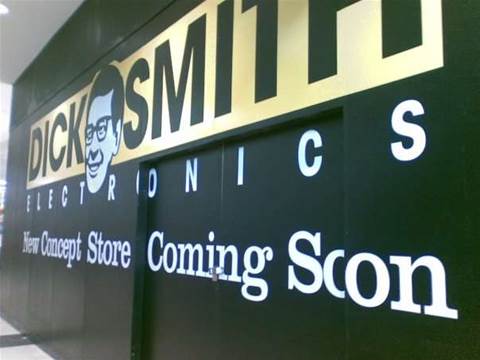Administrator McGrathNicol’s creditors report has revealed a litany of management decisions that led to electronics reseller Dick Smith's downfall.
Chief among them is management’s decisions to purchase stock based on rebates instead of customer demand.
When Deloitte was called to review Dick Smith’s inventory in October, it found that stock worth $180 million of out of $325 million was redundant, leading to the $60 million write-down in November. An internal audit of the same stock identified only $20 million as obsolete.
According to the administrators, the inventory build-up was caused by losing market share while expanding into new stores, along with purchasing decisions based on rebates.
“Purchasing decisions increasingly based on rebates ultimately leads to a slowing of inventory turnover rates, as the products are generally less popular with customers. Eventually, in the case of [Dick Smith], heavy discounts were needed to sell the rebated stock, destroying the margin uplift that the rebate sought to achieve,” said McGrathNicol.
“In some cases, the stock could not be sold at all and became obsolete.”
A leaked letter from receiver Ferrier Hodgson’s lawyers revealed allegations that a rebate purchasing scheme was implemented to deliberately inflate profits. Dick Smith is also alleged to have private label suppliers withdraw invoices without rebates and reissue them with rebates.
The receivers claimed that Dick Smith's directors used commercial sales to cover weak retail performance.
Ferrier Hodgson’s public interrogation of Dick Smith’s former directors will commence in September. Directors confirmed to be called up includes chief executive Nick Abboud, chief financial officer Michael Potts, chairman Robert Murray, former chairman Phil Cave, company secretary David Cooke, and non-executive directors Jamie Tomlinson, Lorna Raine and Robert Ishak.
Apple starts domino effect
Before Dick Smith fell into administration in January, sixteen major suppliers had implemented trading restrictions against the retailer.
One major vendor was Apple, which refused to extend further credit to Dick Smith following declining sales.
This led to Dick Smith to extending its facility with Macquarie Bank by $10 million in October primarily to purchase Apple inventory, which are known to be high-demand, low-margin products.
In December, Dick Smith extended its facility with secured creditors National Australia Bank and HSBC a further $20 million. Macquarie was repaid $10 million from the banks' facility, which breached the terms of its waiver.
By January, Dick Smith determined it was unable to repay Macquarie, resulting in insolvency after it couldn’t agree on an extension from its creditors.
The second meeting of creditors to decide whether Dick Smith will be liquidated is scheduled for 25 July.




.jpg&h=142&w=230&c=1&s=1)

_(21).jpg&h=142&w=230&c=1&s=1)

_(27).jpg&h=142&w=230&c=1&s=1)




.jpg&w=100&c=1&s=0)











